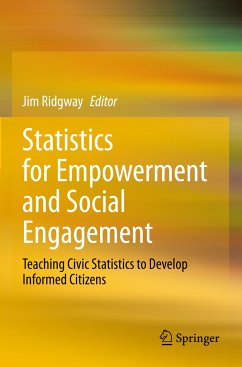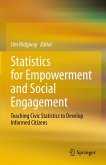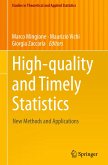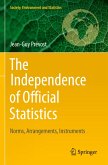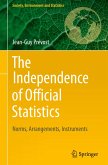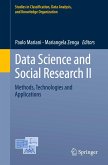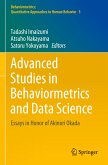"This book is a remarkable achievement" Gerd Gigerenzer
This book offers practical approaches to working in a new field of knowledge - Civic Statistics - which sets out to engage with, and overcome well documented and long-standing problems in teaching quantitative skills. The book includes 23 peer-reviewed chapters, written in coordination by an international group of experts from ten countries. The book aims to support and enhance the work of teachers and lecturers working both at the high school and tertiary (university) levels. It is designed to promote and improve the critical understanding of quantitative evidence relevant to burning social issues - such as epidemics, climate change, poverty, migration, natural disasters, inequality, employment, and racism.
Effective citizen engagement with social issues requires active participation and a broad understanding of data and statistics about societal issues. However, many statistics curricula are not designed to teach relevant skills nor to improve learners' statistical literacy.
Evidence about social issues is provided to the public via print and digital media, official statistics offices, and other information channels, and a great deal of data is accessible both as aggregated summaries and as individual records. Chapters illustrate the approaches needed to teach and promote the knowledge, skills, dispositions, and enabling processes associated with critical understanding of Civic Statistics presented in many forms. These include: statistical analysis of authentic multivariate data; use of dynamic data visualisations; deconstructing texts about the social and economic well-being of societies and communities. Chapters discuss: the development of curricula and educational resources; use of emerging technologies and visualizations; preparation of teachers and teaching approaches; sources for relevant datasets and rich texts about Civic Statistics; ideas regarding future research, assessment, collaborations between different stakeholders; and other systemic issues.
This book offers practical approaches to working in a new field of knowledge - Civic Statistics - which sets out to engage with, and overcome well documented and long-standing problems in teaching quantitative skills. The book includes 23 peer-reviewed chapters, written in coordination by an international group of experts from ten countries. The book aims to support and enhance the work of teachers and lecturers working both at the high school and tertiary (university) levels. It is designed to promote and improve the critical understanding of quantitative evidence relevant to burning social issues - such as epidemics, climate change, poverty, migration, natural disasters, inequality, employment, and racism.
Effective citizen engagement with social issues requires active participation and a broad understanding of data and statistics about societal issues. However, many statistics curricula are not designed to teach relevant skills nor to improve learners' statistical literacy.
Evidence about social issues is provided to the public via print and digital media, official statistics offices, and other information channels, and a great deal of data is accessible both as aggregated summaries and as individual records. Chapters illustrate the approaches needed to teach and promote the knowledge, skills, dispositions, and enabling processes associated with critical understanding of Civic Statistics presented in many forms. These include: statistical analysis of authentic multivariate data; use of dynamic data visualisations; deconstructing texts about the social and economic well-being of societies and communities. Chapters discuss: the development of curricula and educational resources; use of emerging technologies and visualizations; preparation of teachers and teaching approaches; sources for relevant datasets and rich texts about Civic Statistics; ideas regarding future research, assessment, collaborations between different stakeholders; and other systemic issues.

